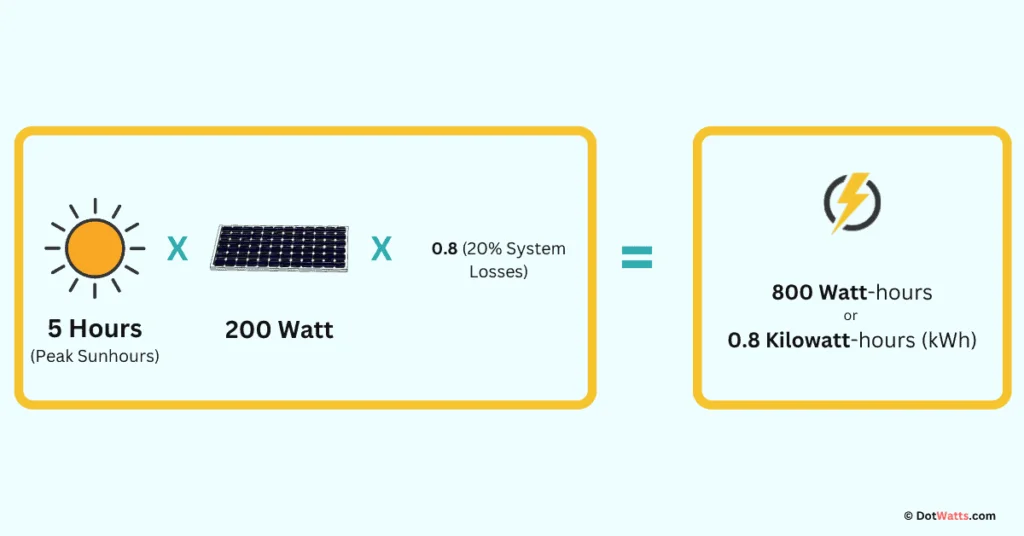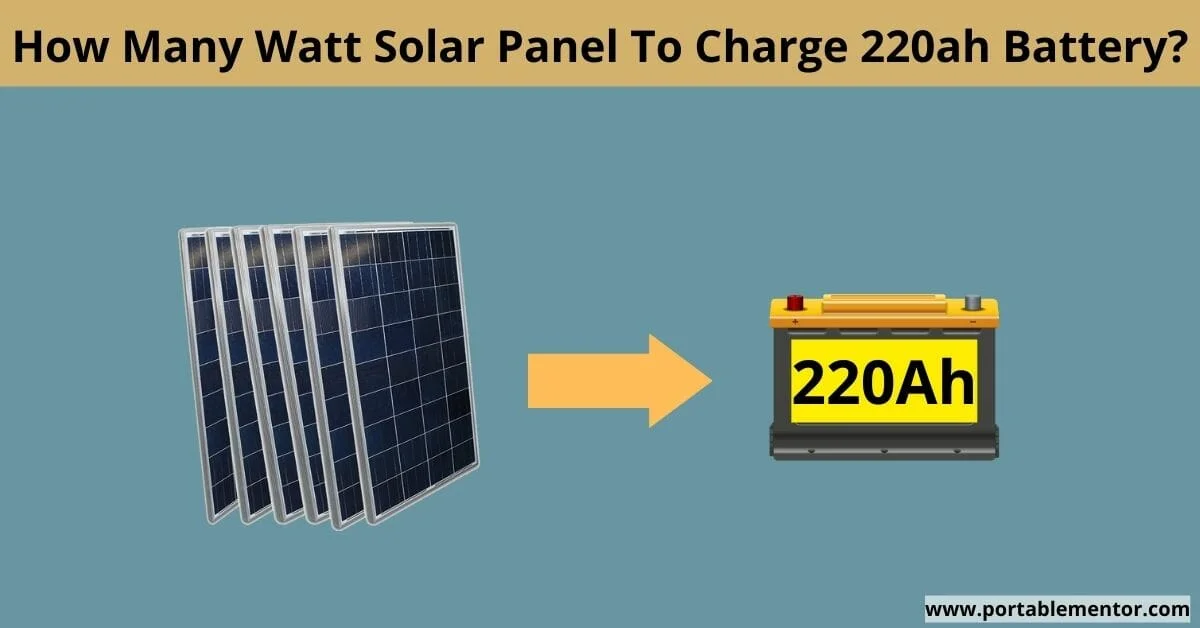I have multiple 200 watt portable solar panels. After having them for more than a year now, i can give you an estimate of how much power a 200 watt solar panel will produce in real world scenarios.
Need an easy solution? Use our solar panel output calculator to find out 200w solar panel output.
Understand the basics first
First, let's understand the basics. Solar panels are rated their power output based on standard test conditions (STC), performed in a controlled laboratory environment.
STC includes: 1kW/m2 of solar radiation (peak sun hour), 25oC temperature, and 1.5 air mass.
In real world scenarios, we measure solar radiation (also known as sunlight intensity, or solar irradiance) when estimating the solar panel output.
In solar world, you'll hear the term "Peak sun hours" instead of solar radiation or sunlight intensity.
1 peak sun hour = 1kW/m2 of solar radiation.
We can not control the other factors, temperature, and air mass. But we can measure the number of peak sun hours (solar radiation) a location receives with the help of PV watts calculator by NREL.
Enter your location (complete address or just city name) and click GO>>. Confirm the location with the help of a map and click result. Now you'd be able to see the average amount of solar radiation your location receives on monthly basis.

In real world conditions, you'd receive about 80% of the rated wattage output from your solar panels during peak sun hours.
I have explained peak sun hours and solar panel output in detail. << Click here to learn more... >>
how much power does a 200 watt solar panel produce?
Now let's calculate how much power will a 200 watt solar panel produce in watt-hours, amps, and volts.
watts, watt-hours

A 200 watt solar panel will produce about 800 - 1000 watt-hours power per day. The exact value will depend on the amount of sunlight solar panels receive.
Formula: Solar panel output = (Solar Panel rated wattage × Peak sun hours) × 0.8
Let's take 5 peak sun hours as an example.
(200 × 5) × 0.8 1000 × 0.8amps
200 watt solar panel output in 5 peak sun hours:800 Wh
Volts
12v 200 watt solar panel will produce about 18 - 18.5 volts under ideal conditions (STC).
Voltage, also known as electric pressure is the difference in electric potential between two points.
In simple words _ Take it as the width of a pipe.
Formula: Voltage = Watts ÷ Amps.
A solar panel will produce a higher voltage when exposed to the sun. So to charge a battery, you need stable voltage. To do that, you need a charge controller. Which will drop the voltage from 18 to 12v to safely charge a 12v battery.
Amps, amp-hours
200 watt solar panel how many amps? 12v 200 watt solar panel will produce between 10 - 11 amps under ideal conditions (STC).
Formula: Amps = Watts ÷ Volts.
Amp (A) is the unit for measuring current. Usually, battery capacities are measured in amp-hours (Ah). Calculating the amps' output of a 200 watt solar panel will give you an idea of how much power is being stored in the battery.
The above value (10 - 11 amps) is based on 18v (why 18v when you've got a 12v solar panel? i just explained earlier).
If you want to measure the amp's output of a solar panel to estimate how much current is being stored in the battery, divide the watts output from the solar panel by battery voltage.
Let's say you have a 12v battery.
200 ÷ 12 = 16.6 Amps.Related Post: What Size Battery for 200W Solar Panel?
DC Vs AC Output
Solar panels produce power output in DC (12-48 volts). But most of our household appliances are designed according to our grid voltage output (110-240 volts).
To convert DC output from solar panels into AC, we use an inverter. But inverters are not 100% efficient. Most of them are about 90% efficient.
This means there will be a 10% power loss when converting DC into AC.
Based on the above calculations:
200w solar panel AC output: 800 × 0.9 (90%) = 720 AC watt-hoursRelated: Solar DC Watts To AC Watts Calculator & Formula
200 watt solar panel output - Chart
Here's a table on how much power can a 200 watt solar panel produce in real world conditions.
| Peak Sun Hours | 200 watt solar panel estimated output |
|---|---|
| 4 peak sun hours | 640 watt-hours |
| 4.5 peak sun hours | 720 watt-hours |
| 5 peak sun hours | 800 watt-hours |
| 5.5 peak sun hours | 160 watt-hours |
| 6 peak sun hours | 960 watt-hours |
| 6.5 peak sun hours | 1.04 kilowatt-hours |
| 7 peak sun hours | 1.12 kilowatt-hours |
6 tips to improve solar panel output
Follow these tips to get the most out of your solar panels.
- Keep your solar panels clean
- Avoid installing solar panels in shaded areas
- Use an MPPT charge controller instead of PWM
- Use the right size wiring for your solar system
- Place your solar panels at a right angle (straight toward the sun)
- Avoid getting black colored solar panels, in summer they'll be less efficient.
200w solar panel: FAQs
200 watts of power is equal to 16.6A @12 volts or 1.6A @120 volts. 200 watts of power means you can run a 200 watt appliance for an hour.
A 200 watt solar panel will produce about 18-18.5 voltage output under ideal conditions (1kW/m2 sunlight intensity, 25oC temperature, and 1.5 air mass).
A 200W solar panel produces about 800 watts of power per day, considering 5kW/m2 of total solar irradiance in a day.
Related posts
- What Will A 200 Watt Solar Panel Run? (Quick Detailed Answer!)
- What Size Inverter For 200W Solar Panel? Do You Really Need It?
- How Long Will 100ah Battery Run 200W Appliance?
- Solar Battery Charge Time Calculator
- Solar Panel Size Calculator For Battery
I hope this post was helpful to you, if you have any queries or suggestions contact us, Thank you!



